26. CRIMSON KING
Acer platanoides 'Crimson'

The Crimson King is a cultivar of the Norway Maple and they are nearly identical genetically. This cultivar has been developed to have dark red/purple leaves rather than the traditional green. The cultivar is a grafted onto root stock that is genetically all Norway Maple. Although invasive in many states, the Arboretum does keep three specimens on hand for study. Two Crimson Kings were planted here in 1992. In late Winter and very early Spring you start to see some color emerge (inset)
EARLY, EARLY SPRING

In very early Spring you will start to see the same bright yellow flower clusters you see on the Norway Maple with the added bonus of dazzling purple/red flowers. This type of maple generally flowers before leafing out, and the cultivar does as well.
SPRING FEMALE FLOWERS, EARLY FRUIT
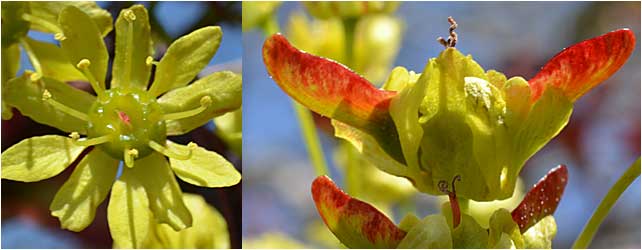
Maples are dioecious trees (M/F on different trees) and this tree is female. The flower is on the left, and the flower on the right (already pollinated) is in the process of generating the winged fruit (samara) of the Norway Maple. You can see the reddish wings emerging, and if you look closely you can even see the seed outline on the wing to your left.
SPRING, EMERGING SUMMER LEAVES
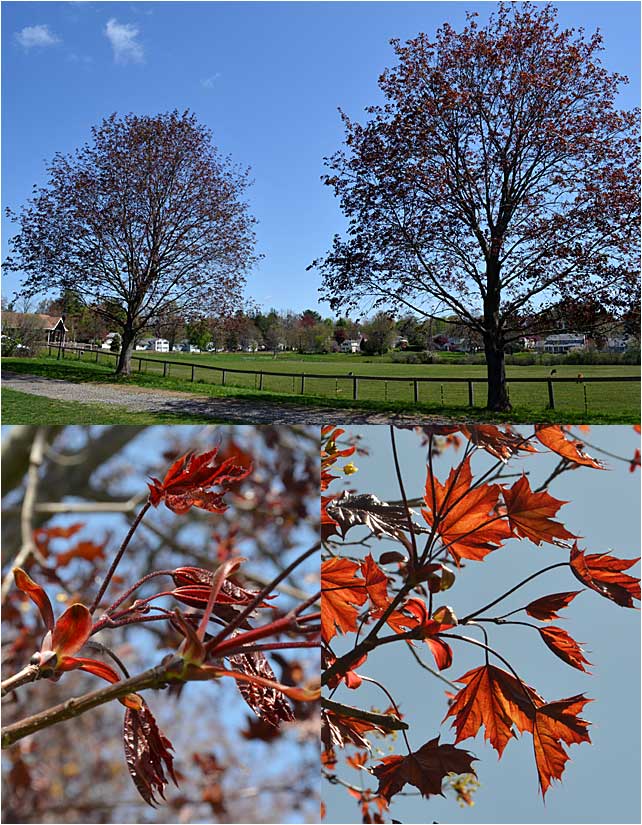
As the Crimson Kings shed their flowers, the leaves take over. They first appear as nearly translucent leaves but soon gain their summer color of dark red to purple. The leaf shape is distinctive as it emerges from the leaf buds.
SUMMER FOLIAGE
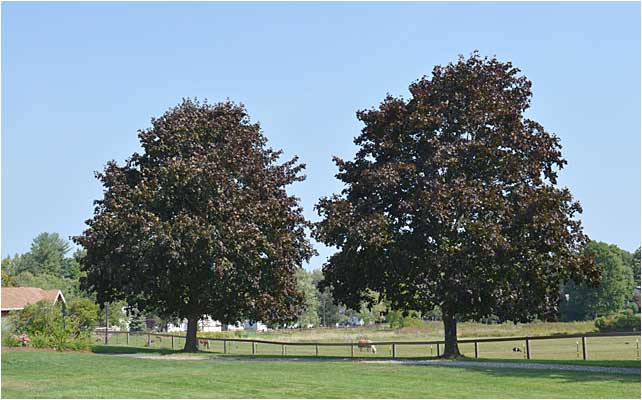
Here are the approximately 30 year old trees (2023) in full summer color. This cultivar was widely popular back in the day before there was widespread awareness of non-native, invasive species. In the case of Norway Maple / Crimson Kings - the big problem is they are prolific seed producers and intense "shaders". It is hard for native trees to get established in a grove of dense Norway Maples.
FALL FOLIAGE

Quite a dramatic color change from the dark red/purple of the summer foliage. While most trees add red pigments in the fall, the Crimson King is losing them and reverting back to the look of the Norway Maple.
CRIMSON KING, LEAF
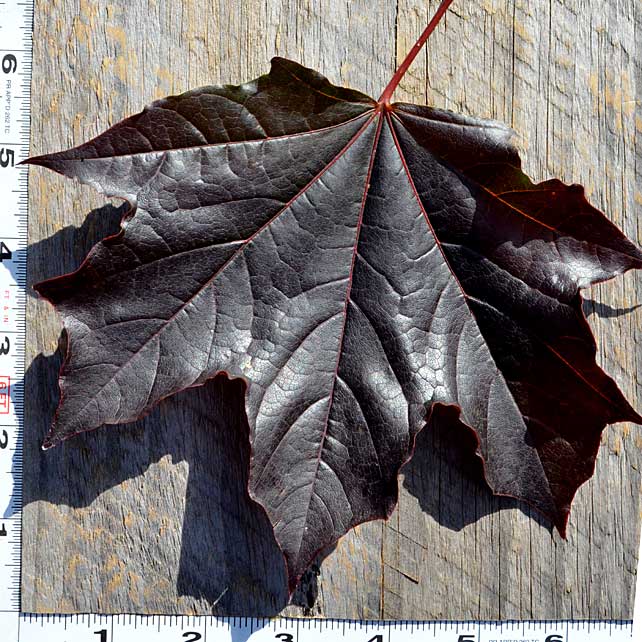
The leaf is large and distinctive, and if it was green it would be very hard to tell it apart from a Sugar Maple (hint: the lobes nearest the stem are smaller in Sugar Maples). The leaf is rich in a pigment called anthocyanin, which is the same pigment that helps green leaves turn red in the fall. But it is hard to figure out why this pigment would help a leaf in summer... Perhaps the best answer for why they are red is that someone thought they could sell red leaves, and they did.
BUDS

One surefire way to tell the difference between Norway and Sugar Maples is to compare the terminal buds.
SAMARAS
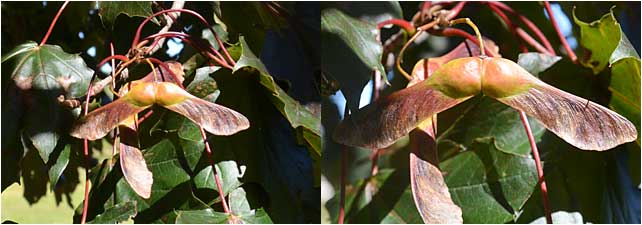
The winged seed/fruit of the Crimson King is called a samara. They are identical to Norway Maple except for their reddish color. The samaras of Sugar Maple are a completely different shape.